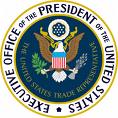 Last month, the U.S. Trade Representative’s Trade Policy Report raised some eyebrows when it scolded Canada for not meeting its ACTA “obligations,” despite the fact that the Agreement is not in effect. (See for instance, Michael Geist’s blog quoting the report). The Trade Policy Report also noted that the U.S. is “working with Japan and other negotiating parties to bring the ACTA into force.”
Last month, the U.S. Trade Representative’s Trade Policy Report raised some eyebrows when it scolded Canada for not meeting its ACTA “obligations,” despite the fact that the Agreement is not in effect. (See for instance, Michael Geist’s blog quoting the report). The Trade Policy Report also noted that the U.S. is “working with Japan and other negotiating parties to bring the ACTA into force.”
Today USTR published another one of its annual reports, the National Trade Estimate (NTE) Report on Foreign Trade Barriers, which continues to discuss ACTA as a trade agreement that is moving forward. The NTE notes that eight countries outside of the EU have signed the agreement, though for most of these countries it also mentions that they have not yet ratified it. The report is arranged country, by country, and it repeats the sentence “ACTA establishes an international framework that will assist parties in efforts to effectively combat the infringement of intellectual property rights” in the sections on Australia, Canada, Japan, Morocco, New Zealand and Singapore.
The report also notes that “actions within the EU on the Anti-Counterfeiting Trade Agreement (ACTA) remain a priority concern for the United States, particularly following the European Parliament’s vote to reject the Agreement.”
Article 40 of ACTA says that the agreement “shall enter into force thirty days after the date of deposit of the sixth instrument of ratification, acceptance, or approval as between those Signatories that have deposited their respective instruments of ratification, acceptance, or approval.” (Full text here.)
Excerpts from the report:
Australia was an active participant in the Anti-Counterfeiting Trade Agreement (ACTA) negotiations and signed ACTA in October 2011. It has not yet ratified the agreement. ACTA establishes an international framework that will assist Parties in their efforts to effectively combat the infringement of intellectual property rights, in particular the proliferation of counterfeiting and piracy, which undermines legitimate trade and the sustainable development of the world economy.
[snip]
Canada, the United States and other key trading partners, signed the Anti-Counterfeiting Trade Agreement (ACTA) in October 2011. Canada has yet to ratify the agreement, but introduced domestic legislation to meet its ACTA commitments. ACTA establishes an international framework that will assist parties in efforts to effectively combat the infringement of intellectual property rights, in particular, the proliferation of counterfeiting and piracy, which undermines legitimate trade and the sustainable development of the world economy.
[snip]
On enforcement, actions within the EU on the Anti-Counterfeiting Trade Agreement (ACTA) remain a priority concern for the United States, particularly following the European Parliament’s vote to reject the Agreement in July 2012, and the Commission’s decision in December 2012 to withdraw its request to the
European Court of Justice to review the Agreement’s consistency with EU law. These actions stand in contrast to the active participation of the Commission and the Member States in the ACTA negotiations, which concluded in November 2010, and which culminated in the EU and 22 of its Member States signing the ACTA on January 26, 2012.
[snip]
Japan’s signing of the Anti-Counterfeiting Trade Agreement (ACTA) in October 2011 and ratification of ACTA in September 2012 were positive steps. The ACTA establishes an international framework that will assist parties in their efforts to effectively combat the infringement of IPR, in particular the proliferation of counterfeiting and piracy, which undermines legitimate trade and the sustainable development of the world economy.
[snip]
Mexico was an active participant in the Anti-Counterfeiting Trade Agreement (ACTA) negotiations, which were concluded in November 2010. Mexico signed the ACTA in July 2012, but has not yet submitted the agreement to the Mexican Senate for ratification.
[snip]
Morocco is a signatory to the Anti-Counterfeiting Trade Agreement (ACTA), which is awaiting ratification by the Moroccan parliament. The ACTA establishes an international framework that will assist parties in their efforts to effectively combat the infringement of IPR, in particular the proliferation of counterfeiting and piracy, which undermines legitimate trade and the sustainable development of the world economy.
[snip]
New Zealand was an active participant in the Anti-Counterfeiting Trade Agreement (ACTA) negotiations, and signed the ACTA in October 2011. The ACTA establishes an international framework that will assist parties in their efforts to effectively combat the infringement of intellectual property rights, in particular the proliferation of counterfeiting and piracy, which undermines legitimate trade and the sustainable development of the world economy.
[snip]
Singapore is a signatory to the Anti-Counterfeiting Trade Agreement (ACTA), but has not yet ratified the agreement. ACTA establishes an international framework that will assist parties to the agreement in their efforts to effectively combat IPR infringement, in particular the proliferation of counterfeiting and digital piracy, which undermines legitimate trade and the sustainable development of the world economy.
[snip]
Switzerland was a participant in the Anti-Counterfeiting Trade Agreement (ACTA) negotiations. However, it is unclear if or when Switzerland will sign or ratify the Agreement.




